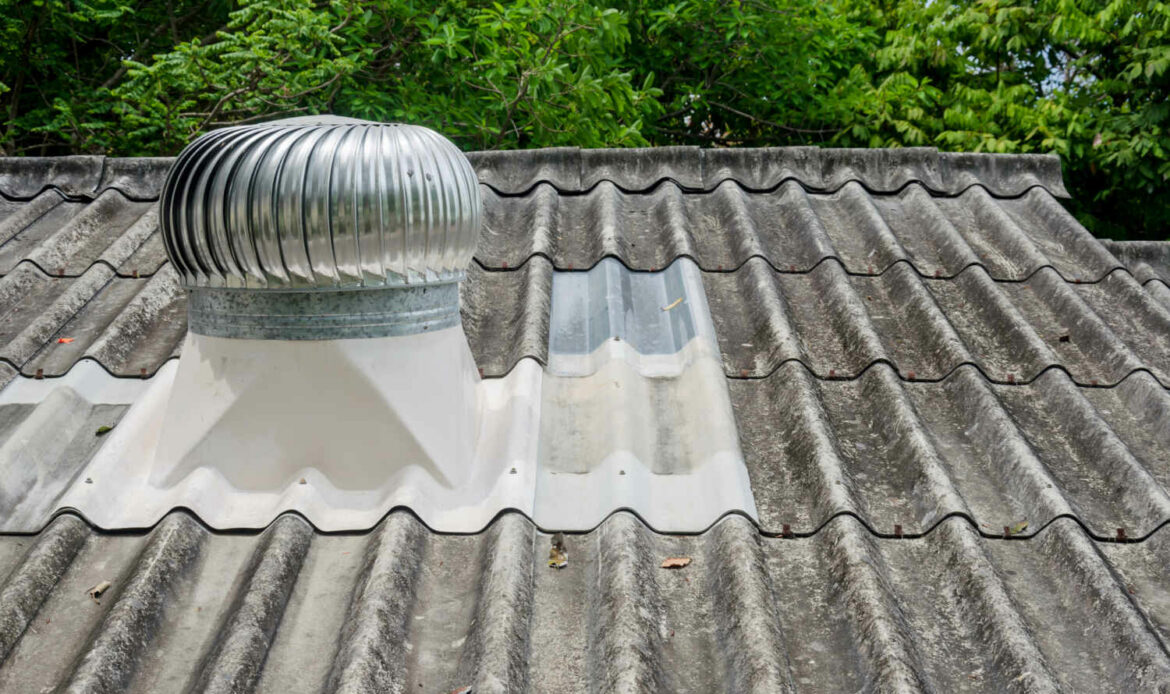A well-ventilated roof is essential for a healthy and durable home. Roof ventilation helps regulate temperature and moisture levels, preventing issues like mold growth, ice dams, and structural damage. Choosing the right roof ventilation for your New Jersey home can enhance energy efficiency, improve indoor comfort, and extend the lifespan of your roof.
In this guide, we will explore the importance of roof ventilation, the different types of systems available, and how to determine the best option for your home. Understanding these aspects will help you make informed decisions, ensuring your roof remains in optimal condition year-round. By investing in the right ventilation system, you can safeguard your home from potential damage and enjoy a more comfortable living environment.
Understanding the Importance of Roof Ventilation
Proper roof ventilation is essential for maintaining a healthy and durable home. It allows air to circulate, helping to regulate temperature and moisture levels inside the attic and roof structure. This balance of airflow prevents heat buildup during summer, which can reduce cooling costs and prolong the life of roofing materials. In winter, good ventilation prevents moisture accumulation, which can cause mold growth and ice dam formation.
Heat buildup can cause shingles to warp and insulation to deteriorate, leading to reduced energy efficiency. Moisture accumulation, on the other hand, can weaken the roof deck, cause wood rot, and create an environment conducive to mold and mildew. These problems can lead to costly repairs and even health issues for your family.
Types of Roof Ventilation Systems
There are several types of roof ventilation systems available, each with its own set of benefits. Understanding these options can help you choose the best system for your New Jersey home.
1. Ridge Vents: These are installed along the peak of the roof and allow warm, humid air to escape from the attic. Ridge vents provide even air distribution and are less noticeable, offering a seamless look.
2. Soffit Vents: Located under the eaves of the roof, soffit vents allow fresh air to enter the attic. They work well in conjunction with ridge vents, creating a continuous airflow that keeps the attic cool and dry.
3. Gable Vents: Installed in the gable ends of the attic, these vents facilitate cross-ventilation. Gable vents are effective but may not provide as uniform airflow as ridge and soffit vents.
4. Power Vents: These are electric or solar-powered fans that actively pull hot air out of the attic. Power vents are useful in homes with limited passive ventilation options but require an energy source to operate.
5. Turbine Vents: Wind-powered, these vents spin to draw air out of the attic. They are cost-effective and efficient but depend on wind for maximum performance.
6. Box Vents: Also known as low-profile vents, these are installed in the roof deck and allow hot air to escape. Box vents are fixed and do not require wind or power to function.
Choosing the right type of ventilation involves evaluating your roof’s design, the local climate, and your specific needs. Each system has its strengths, and sometimes, a combination of different vents works best to achieve optimal roof ventilation.
How to Determine the Right Ventilation for Your Home
Choosing the right ventilation system for your home involves several factors. First, consider the climate in New Jersey, which experiences both hot summers and cold winters. Your ventilation needs to handle temperature extremes effectively.
Next, evaluate your roof design and attic space. Homes with complex roof designs may benefit from a combination of ventilation systems to ensure even air distribution. Ridge and soffit vents work well for most homes, but you might need additional options like gable or power vents for larger or uniquely shaped roofs.
It’s also important to check local building codes and regulations. Some areas have specific requirements for roof ventilation to ensure safety and efficiency. Consulting with a professional can help you navigate these regulations and make informed decisions.
Lastly, think about energy efficiency. A well-ventilated roof improves your home’s overall energy performance, reducing heating and cooling costs. Make sure your chosen system is both effective and energy-efficient.
Benefits of Proper Roof Ventilation
Proper roof ventilation offers numerous benefits that can enhance your home’s comfort and longevity. Here are some key advantages:
1. Temperature Regulation: Good ventilation keeps attics cooler in the summer and prevents ice dams in the winter. This helps maintain a comfortable indoor temperature year-round.
2. Energy Efficiency: Reduced heat buildup means your air conditioner doesn’t have to work as hard, lowering energy bills. In winter, proper ventilation reduces the load on your heating system by preventing ice dams.
3. Extended Roof Life: Proper ventilation minimizes moisture and heat accumulation, preventing the deterioration of roofing materials and extending the lifespan of your roof.
4. Moisture Control: Effective ventilation reduces the risk of mold and mildew, protecting your home’s structural integrity. It also prevents wood rot and other moisture-related problems.
5. Improved Indoor Air Quality: Ventilation systems allow your attic to breathe, preventing the buildup of pollutants and allergens and improving the air quality inside your home.
By ensuring your roof is properly ventilated, you can enjoy these benefits and protect your investment in your home.
Conclusion
Choosing the right roof ventilation for your New Jersey home is crucial for maintaining its health and comfort. Understanding the various types of ventilation systems and their benefits will help you make an informed decision. Proper ventilation regulates temperature, improves energy efficiency, extends the lifespan of your roof, and enhances indoor air quality.
To ensure your roof is in top shape and your home remains comfortable and energy-efficient, it’s important to invest in the right ventilation system. For expert advice and professional installation, contact us at Tri State Enterprises today. Our team of roofing contractors in New Jersey is ready to help you choose the best roof ventilation for your home.
